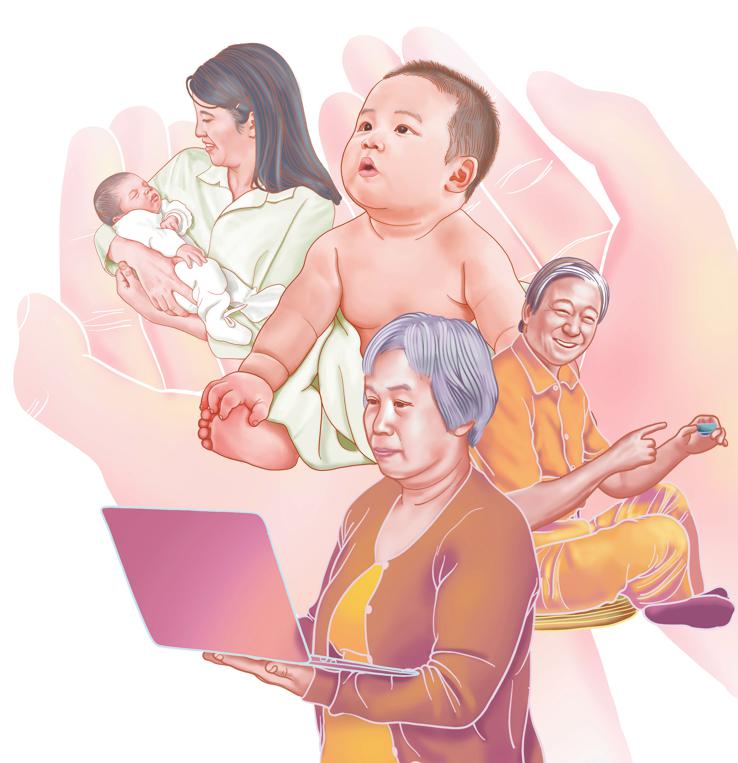Delayed retirement will add to vibrancy of economy and society
China Daily | Updated: 2024-09-13 06:53

In its 11th session, which ends in Beijing on Friday, the Standing Committee of the 14th National People's Congress has been deliberating on a draft proposal submitted by the State Council, China's Cabinet, on gradually extending the statutory retirement age.
Because of the country's sizable aging population, the scale and structure of China's labor force have undergone marked changes.
Data show that the working-age population in China, aged 16 to 59, began declining from 2012 onward, and the age structure of the labor force has also increased, with the proportion of people aged 45 to 64 in the 15-to-64 group increasing from 27.3 percent in 2000 to 41.91 percent in 2022. This poses a grim challenge to China's sustained labor supply.
With the development of science and technology and changes in the country's economic structure, work that is purely dependent on physical labor has greatly declined, with more knowledge-based and skilled jobs emerging. These provide greater possibilities for extending the working life which calls for raising the statutory retirement age.
China's statutory retirement age system has not undergone any major adjustments or changes since it was established in the 1950s, even though today's demographic structure, economic and social development and other aspects have undergone many changes.
Raising the statutory retirement age, and increasing the participation of the elderly in the labor market through systemic designs, will be conducive to increasing the size of China's labor force and boosting the development of the whole society and economy.
Also, if elderly people are employed for longer because of a change in retirement age, their incomes will increase, improving overall consumption and driving a virtuous cycle from income to consumption to industrial development.
In the past years, by promoting the popularization of higher education, and enhancing the adaptability of vocational education, Chinese people's per capita education years have increased year-by-year.
By delaying the retirement age, more capable, knowledgeable and experienced labor groups can continue to participate in productive economic activities, contributing to the development and vibrancy of the economy and society.
CHINA MEDIA GROUP
























